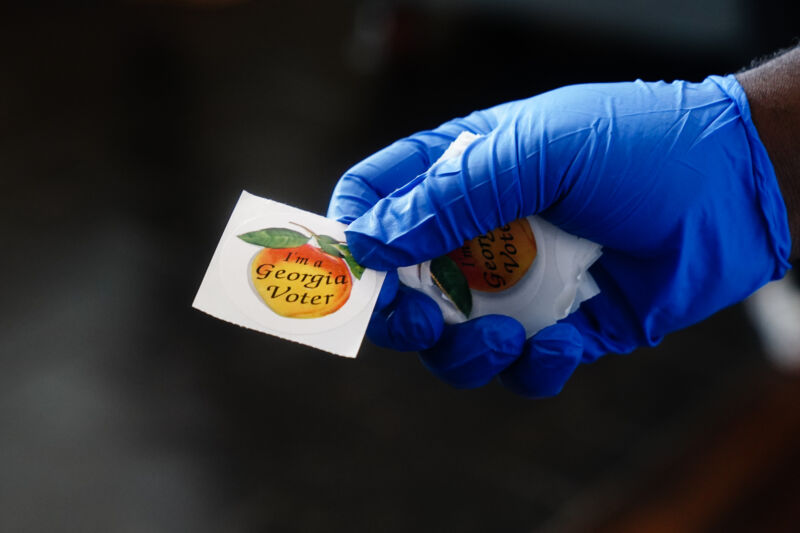How Internet-connected voter check-in devices can create election chaos

Enlarge / A polling-place worker holds an "I'm a Georgia Voter" sticker during the primary election on June 9, 2020 in Atlanta. (credit: Elijah Nouvelage/Getty Images)
A federal judge in Georgia has ordered election officials to print paper backups of voter data so that voting can proceed even if the digital system for checking in voters fails. This is a win for plaintiffs who have argued that flaws in Georgia's electronic-poll-book (EPB) system hampered voting in the June primary and could do so again in November.
Over the last 20 years, a lot of discussion has revolved around the risk that electronic voting machines pose to the security and integrity of elections. But there has been less attention paid to electronic poll books-another digital system that can undermine election integrity if they malfunction.
Pollworkers use EPBs to verify a voter's eligibility and then check the voter in. Malfunctions in these systems can slow down the voting process so much that some people give up voting altogether. By targeting precincts where most people vote for a particular candidate or party, a hacker could potentially swing a close election just by triggering malfunctions in electronic poll books. And while voting machines are supposed to be kept off the Internet, electronic poll books are often online throughout election day.
Read 11 remaining paragraphs | Comments